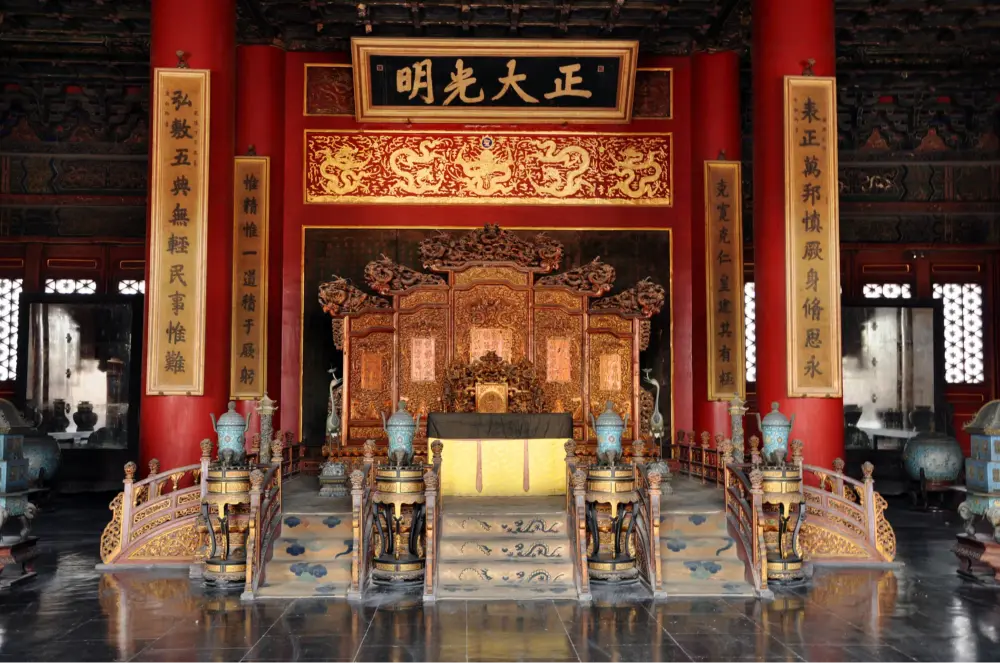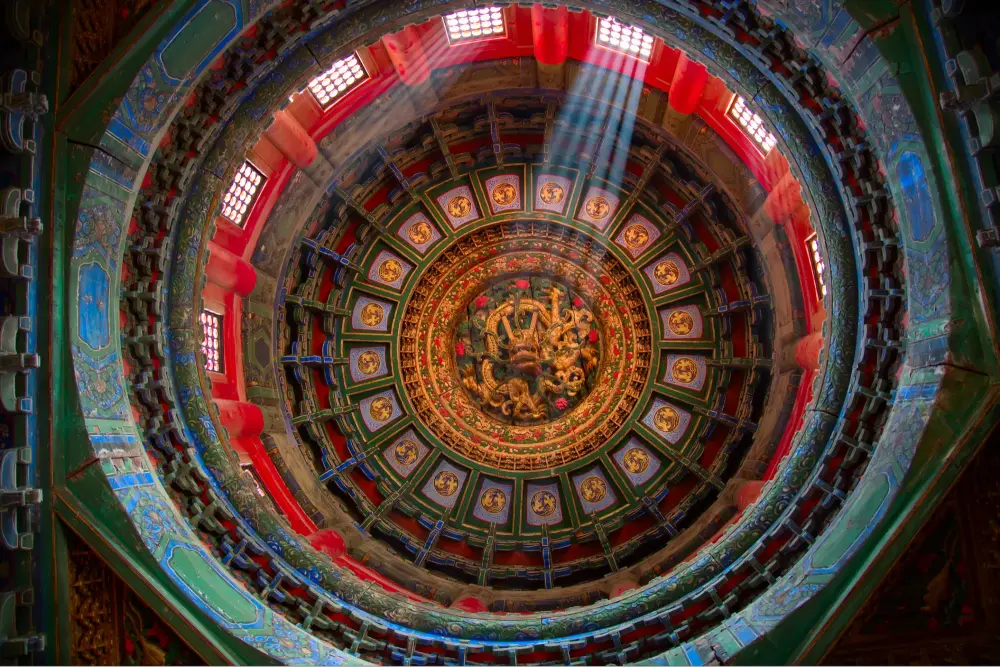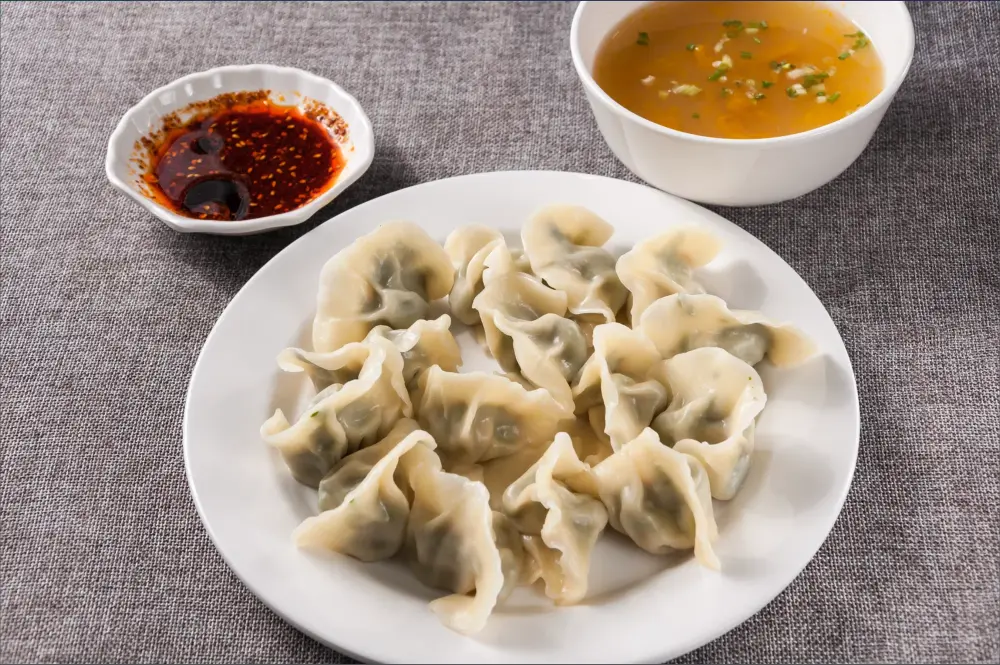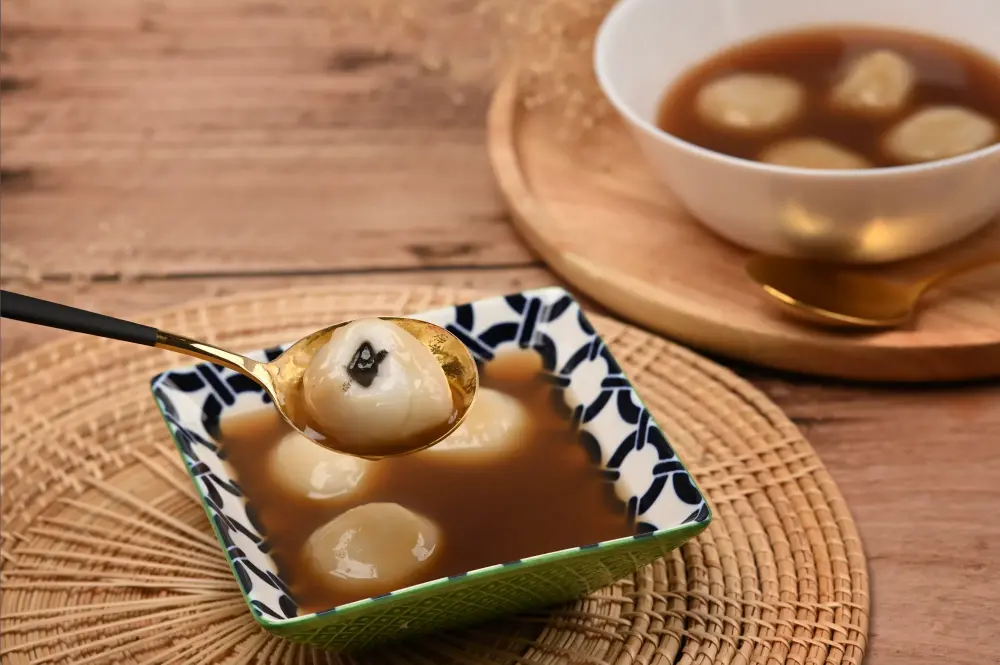The winter solstice is one of the 24 solar days in the Chinese lunar calendar and marks the time when the yin energy reaches its peak and the yang energy begins to rise. It is an important turning point that symbolises the beginning of the new annual cycle. In traditional Chinese culture, the winter solstice has great significance and it is often said: "The winter solstice is just as important as the New Year." During the Qing dynasty, the winter solstice was considered the three most important festivals together with the New Year and the Longevity Festival. On this day, the emperor personally performed a grand ceremony in the Temple of Heaven to thank the God of Heaven.
The winter solstice normally takes place between 21 and 23 December, but this year it is on 22 December. On this day, the emperor makes offerings to heaven in the hope of receiving blessings. There are many auspicious sights to see in Beijing. In the morning, the sunlight shone through the Qianqing Palace of the Forbidden City, illuminating the panel with the inscription "Zheng Da Guang Ming" (Great Brightness) and the five golden dragons below it from east to west. The panel dedicated to the God of Heaven in the Temple of Heaven would also be illuminated by the first rays of the winter solstice sun.
The golden dragon head in the centre of the coffered ceiling of the Longevity Pavilion in the Imperial Garden of the Forbidden City would also be illuminated on this day. In the Summer Palace, the golden sunset of the winter solstice would shine through the 17-arch bridge, creating a breathtaking visual spectacle. These wonders are not simply a gift from the heavens, but rather the result of the ingenious architectural planning of ancient China. The ancient Chinese were skilled at observing celestial phenomena and used their knowledge of the position of the sun at the winter solstice to ensure that the sunlight shone on certain places at the right time.
The ancients also developed health practices based on the concepts of the sun. According to the *Huangdi Neijing* (Yellow Emperor's Inner Canon), winter is a time of "closing and storing". It says: "In the three months of winter, this is called closing and storing. Go to bed early and get up late and wait for the sunlight. Avoid the cold and seek the warmth; this is the way to respond to the winter climate and nourish the body's energy. This means that with the arrival of winter, the cold weather causes plants to wither and insects to hide. This marks the time when all things retreat and retain their vitality. This is the ideal time to nourish the body. It is recommended to protect yang energy, preserve life essence, sleep early and get up late, and avoid excessive cold. Moderate physical activity is recommended, but excessive sweating should be avoided as this can deplete the body's energy and harm the yang.
Winter is the best time to nourish the kidneys. According to the old saying "In autumn and winter, nourish the yang, supplement the deficiency and warm the cold", it is important to avoid cold or raw foods. It is better to eat warming but not too hot foods such as lamb and radish soup to counteract the cold and replenish vitality.
As an important festival, the winter solstice is also associated with various delicious dishes. A well-known saying goes: "In the north they eat dumplings, in the south rice cakes; the winter solstice is as important as the New Year, and sticky rice makes it round." In many northern regions of China, it is customary to eat dumplings on the winter solstice, as they are said to ward off the cold. The saying goes: "If you don't eat dumplings on the winter solstice, your ears will freeze to death and nobody will care." In the south, especially in the Jiangnan region, people eat tangyuan (sweet glutinous rice balls) on the winter solstice. The round shape of the tangyuan symbolises unity and completeness, and eating them is known as the "winter solstice round". In the Guangdong and Guangxi regions, people eat roasted meat on the winter solstice, which symbolises the completion of food and the prolongation of life.
The winter solstice is here and spring is on its way. I wish everyone good health and that all their wishes come true!




